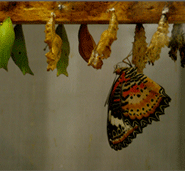This year, The Fuschia Tree's issues tackle 'The Unseen': seemingly invisible and tangential ideas that change the course of our lives. If there is an Unseen that has preoccupied you, or affected you deeply and you would like to have us create stories around it, feel free to email us at . The Choice, after all, is yours.
'Tis in ourselves that we are thus or thus. Our bodies are our gardens, to the which our wills are gardeners. So that if we will plant nettles or sow lettuce, set hyssop and weed up thyme, supply it with one gender of herbs or distract it with many—either to have it sterile with idleness, or manured with industry—why, the power and corrigible authority of this lies in our wills. [WS, Othello, III.3]
What makes us wake up? And what makes us do? The routes of desire are curlicue, as is the future, in which we will.
This issue explores the idea of will, free or dribbled with artifice, as a proper noun, a common noun, a verb and finally questions whether it is simply a facet of language.
The Winter's Tale, a play written by Will-iam Shakespeare, unburdened by truth or consistency, is being performed in Delhi as this issue goes live. When nature and art are inverted, we are made to laugh. At the end of the play, when the art-making is complete, we are left to our natures. And perhaps we cry. This shuffle of temperament distorts our sense of time, (just as sixteen years pass between acts), and we grow young even as we age.
In The Dalai Lama's Cat, David Mitchie writes a guide to happiness through the life of a cat living in a monastery. One's will, then, is guided by something outside of a central ego. By way of the other, it is driven by kindness, and by the isolation of time from its clock. "Set your alarm clock ten minutes earlier. You might think ten minutes is nothing, but if you're not a meditator, ten minutes of meditation a day will change your life."
Desire Machine Collective's 'Bhotbhoti Tales' tells the story of a listless river that bends without form, and the boats that must carry people across its breadth for lack of a bridge (the bridge that does exist is an invisible one between the water and the heavens). "This, then, is the problem with an unwavering Will: it may lead you to the bottom of the river. The men, women, bicycles and shopping bags all have wills of their own. For them, the Bhotbhotis are intermediary; life takes place on the shore. They have a sense of coursing along in a specific direction, waiting to empty out into the sea. But unlike rivers, life is not unidirectional. We travel back and forth, walking, drifting, dragging, occasionally pausing to rescue a drowning person or two, while Gods trample overhead".
Finally, conceptual artist Kiran Subbaiah explains how his art is only created in reaction to others', how "one also cannot help but look at an artist’s life’s body of work as biography", and therefore to measure will as a future self having risen from an accumulation of multiple presents.
The issue tries, without forcing conclusions, to at least gesture at this: it is in the moment of wonder that we will.
And with that, I will you to read.
With love,
Himali.


